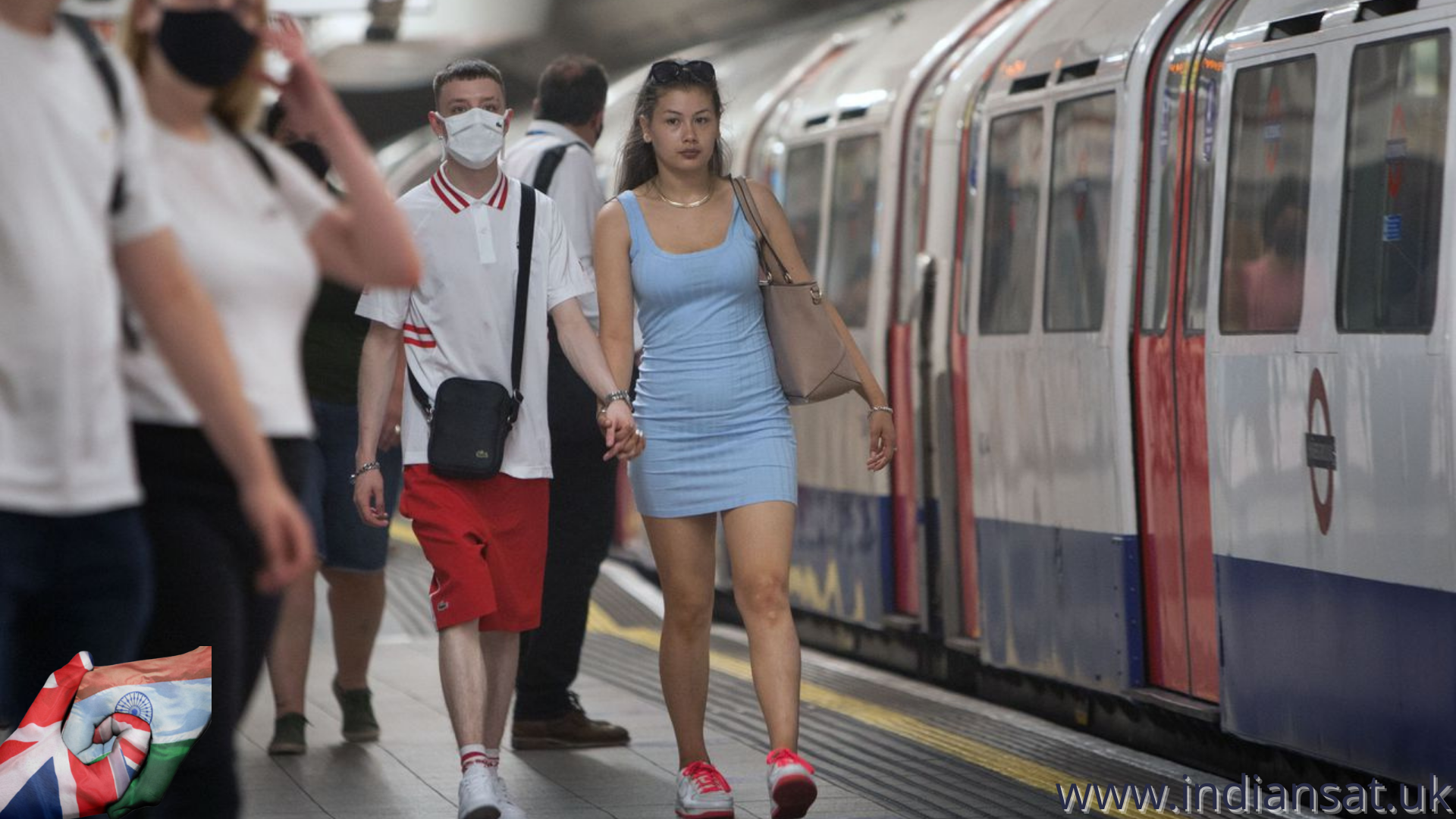The spike in coronavirus cases in New England due to the Delta variant has sparked familiar worries in a region that has seen more than a year of death and disruption because of the pandemic. But there may be some hopeful signals emerging from places overseas that have experienced earlier Delta outbreaks.
Cases have been plummeting in the United Kingdom recently, even as that nation has fully opened up its economy after a long delay. The Netherlands has seen a similar decline. And India, where the super contagious variant was first identified, also saw a rapid drop after the horrific toll of April and May.
People who study the virus say it’s not yet clear what is leading to the sharp drops and different factors may be at play in each country. But other places that are now confronting Delta around the world, such as Israel, may provide additional clues about how the unpredictable virus might behave here.
Dr. David Hamer, an infectious disease specialist at Boston Medical Center, said in an interview last week he’s “cautiously optimistic” — for the moment — over what he is seeing out of Europe.
Hamer, who is also a professor of global health and medicine at the Boston University schools of public health and medicine, said it’s possible that the rapid decrease is a function of “herd immunity,” either achieved by high vaccination rates or high infection levels.
The United Kingdom and the Netherlands have a “greater degree of coverage of vaccination” than India, he said, which can prevent infections, severe disease, and hospitalization. Hamer said most of the new cases these countries have seen were in unvaccinated people.
“If you have a combination of natural immunity induced by infection with Delta, and then you have fairly high levels of vaccine coverage, you’re going to get to a level of herd immunity that will drive down transmission and potentially lead it to stop or at least slow down to much lower levels,” Hamer said.
That could be a positive sign for Massachusetts, which has one of the highest vaccination rates in the United States. Hamer noted, however, that the target for herd immunity might need to be higher for the Delta variant than it was for the earlier versions of the virus because it is more contagious.
That was on display recently in Provincetown, which has seen a cluster of about 900 cases, three-quarters of which were in vaccinated people.
In countries such as India, however, where the rate of vaccination is not as high, Hamer said the rapid decline in cases might be due to factors that drove down cases here last spring: social distancing, less travel, and masks.
And there are reasons for caution. After a period of relatively low cases following the decline in India, that country has recently seen a small uptick, and some fear it may multiply.
Hamer emphasized that a decline in Delta variant cases is more likely if people continue to get vaccinated, get tested if they experience any symptoms or are exposed to the virus, and isolate if they have COVID or suspect they have it.
“Breakthrough infections when somebody’s vaccinated are much less common than if somebody’s not been vaccinated,” he said.
Martha Werler, chair of the epidemiology department at Boston University, said last week that an “encouraging” sign is the fact that vaccinated people who have fallen ill from the Delta variant typically have milder cases of COVID.
The majority of people who contract the virus in Massachusetts are unvaccinated, and instances of vaccinated people contracting severe cases are even rarer. Nonetheless, no vaccine is 100 percent effective, and there have been breakthrough cases.
And the situation in Provincetown suggested that in some of these breakthrough cases the virus can spread among vaccinated people.
Cases started ticking up in the popular tourist town after the Fourth of July weekend, when crowds gathered to celebrate the holiday. Most of those cases have been mild, and no deaths have been recorded.
The Centers for Disease Control and Prevention leaned on data from Provincetown last week when it recommended even vaccinated people return to wearing masks indoors in areas with high or substantial transmission. In Massachusetts, those areas now include Suffolk, Middlesex, Bristol, Barnstable, Essex, Hampden, Plymouth, Worcester, and Nantucket counties.
Lauren Ancel Meyers, the director of the University of Texas Austin COVID-19 Modeling Consortium, said last week that the United States is entering the beginning of the surge that the UK is coming down from, which “sounds an alarm for us.”
“Now is the time to adopt the CDC’s recent recommendations that all people — vaccinated or not — wear face masks, exercise caution,” he said. It also elevates the importance of “really getting the vaccines out as quickly, as widely, as uniformly as possible, especially as we’re looking towards the reopening of schools in a matter of weeks,” Meyers said.
![]()






